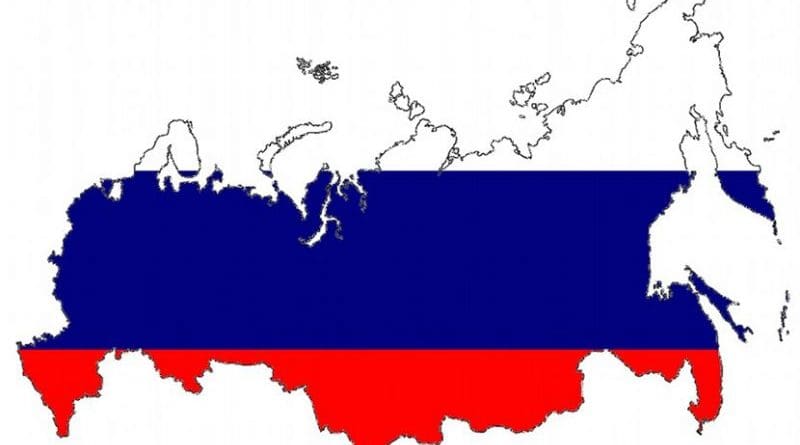#RussianLivesMatter Promotes ‘A Political Ethnic Russian Nation’ – OpEd
By Paul Goble
Something unusual has happened in Russia while most of its residents follow events in the US backing for one reason or another the American powers that be or the demonstrators in the streets: One Russian politician has picked up on the BlackLivesMatter hashtag to promote an analogous #RussianLivesMatter one.
In the midst of all the usual comments about events in the US, Roman Popkov says, there has been only a single example of “a logical and ideologically and morally based position.” It is offered by Mikhail Svetov of the Civic Society movement who notes that “our police kill and torture us Russians” (mbk-news.appspot.com/sences/russianlivesmatter/).
The new hashtag has become “the main trend of the Russian-language twitter feed” because it reflects the police abuse of the population that has long been customary in Russia and because it represents a remarkably clever way to promote the idea of an ethnic Russian civic nation, something the powers that be have failed to do because they fear it could threaten them.
What is most significant and perhaps surprising about Svetov’s appropriation is his use of the ethnic term russky rather than the ethnically neutral rossiisky, thus making him part of the ongoing effort to “rehabilitate the word russky” and define it as the basis of civil society in the Russian Federation rather than as an obstacle to the emergence of that kind of society.
Yeltsin and his team tried to promote the non-ethnic term rossiyane but weren’t able to give it any content beyond “’citizens of the Russian Federation,’” and in Putin’s time, rossiyane has become a bureaucratic term equivalent to such frauds as “’federation’” and “’law enforcement organs.’”
And most Russians treat the use of “russky” and “rossiisky” as interchangeable, something that has the effect of gutting the meaning of the former by suggesting it has no content other than the limited one that the latter provides. The powers aren’t unhappy about that because it means the Russian nation isn’t in a position to challenge them.
But that is exactly why a jointly civic and ethnic Russian nation is important, Popkov continues. Only a civic nation based on heavily on ethnicity like in Ukraine can challenge tyranny. Russia, having lost that opportunity for the last 30 years, is suffering the consequences, he says.
The experience of other countries strongly suggests that “only a civic nation can defeat a tyrannical regime” and only a civic nation can serve as an effective basis for challenging tyranny if it contains a significant ethnic admixture. Otherwise, it will be hollow and no basis for bringing democracy.
Unfortunately, Popkov says, one has the impression that “a number of old oppositioners and authoritative chief editors simply want to restore in place of Putinism the Yeltsin Russian Federation of the 1992 model.” But these people should remember that “the unending Weimar-ization of Russia is a path to unending catastrophes.”
“Tyranny fears most of all precisely Russian flags in our hands and the word ‘russky’ in our political arsenal,” Popkov concludes. That makes the hashtag #RussianLivesMatter especially important, even if it arose in a most improbable way as a borrowing from Black America.

